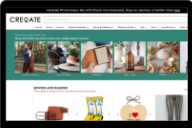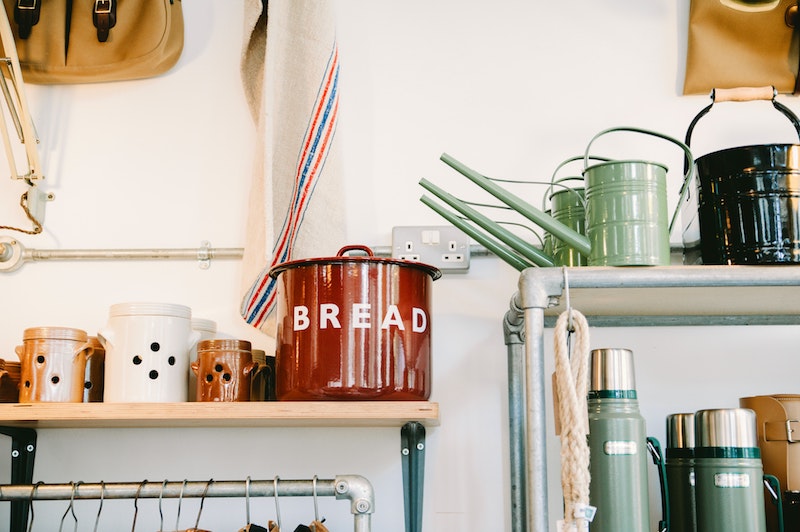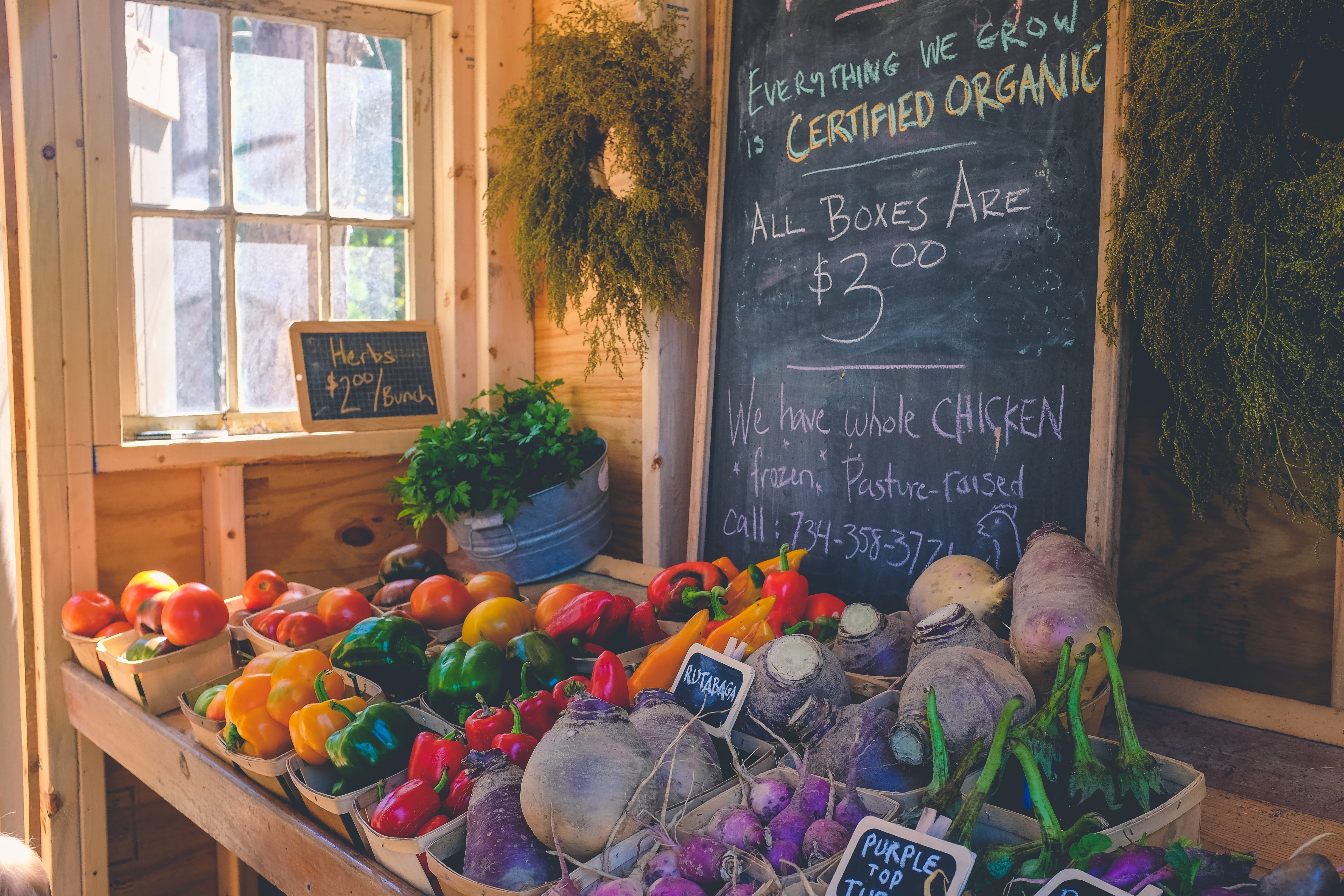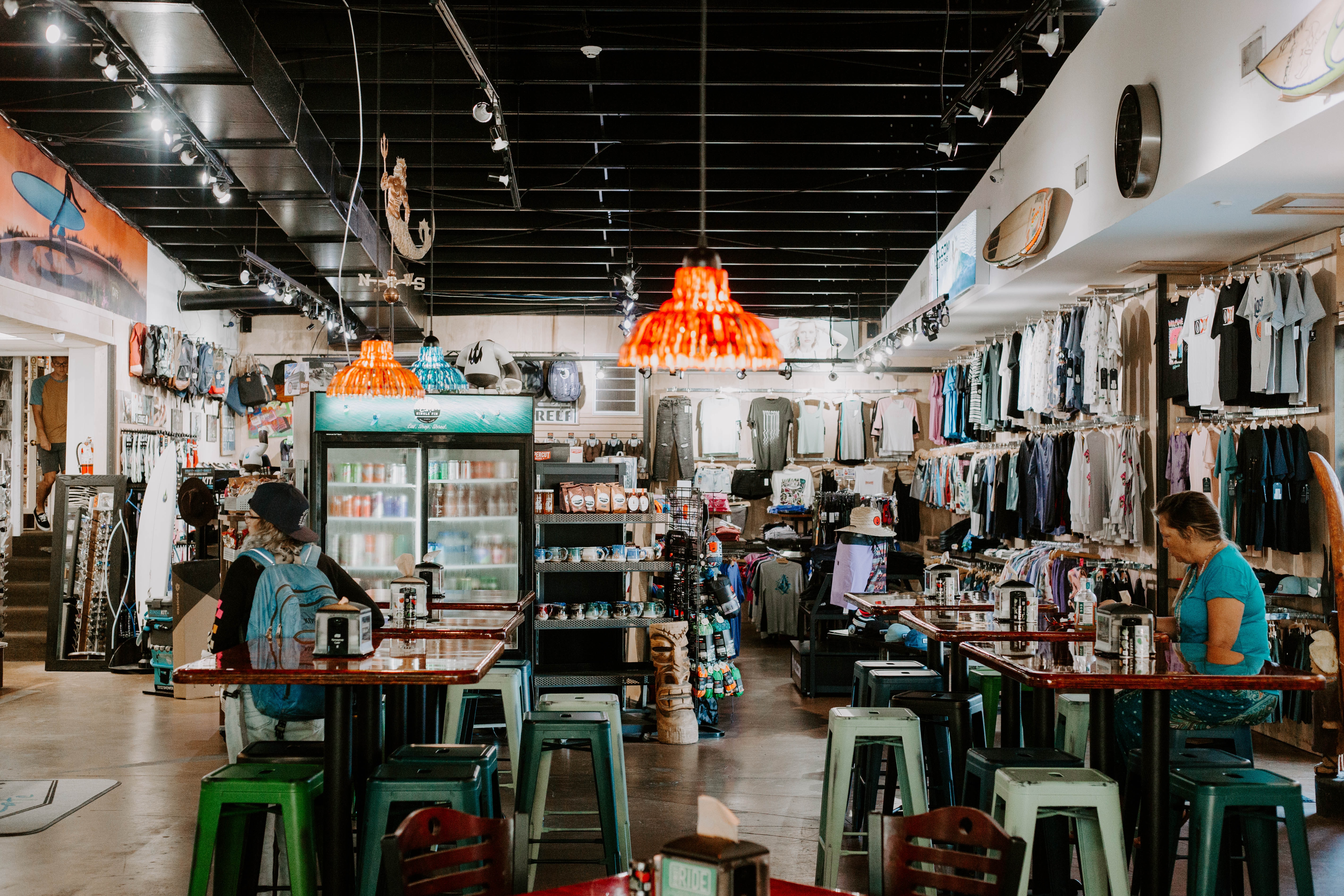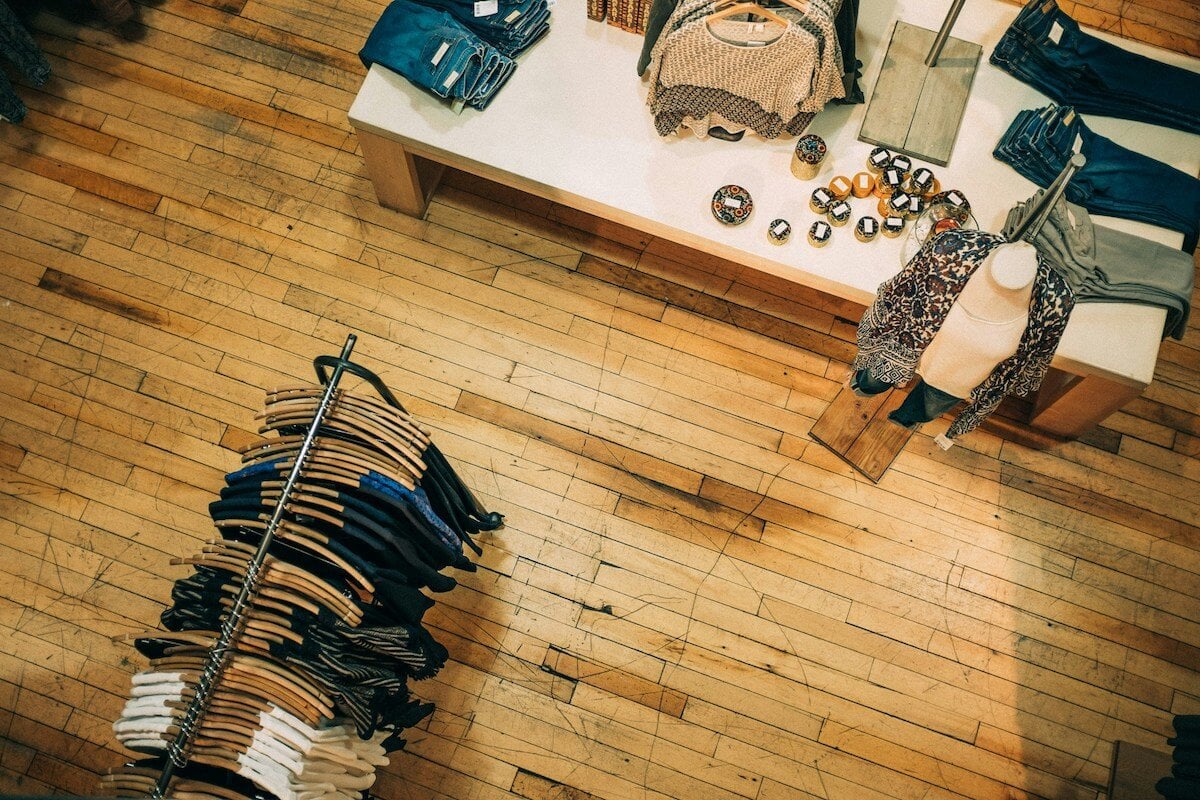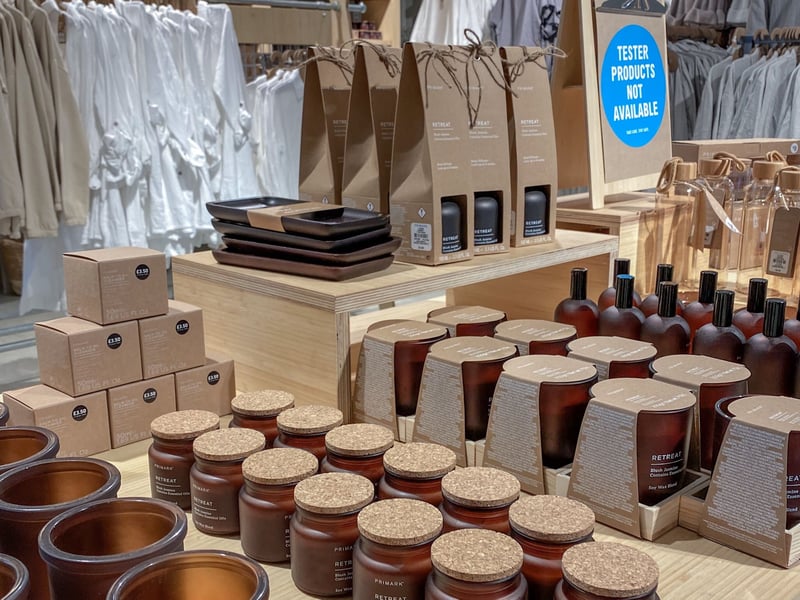
Earlier this year, 565 of you generously gave us your time to complete a survey about your current challenges, and focuses going forward.
While it’s clear you’re still facing a pretty difficult environment, it’s clear that many of you feel very committed to making your business more sustainable and eco-friendly. In fact, 93% of you said it was either a focus, or a big focus, for the year ahead.
In light of this, we’ve put together a list of advice for making your retail business more sustainable; from the products you choose to stock, to the utilities provider you use. Many of these suggestions came straight from our wonderful community of retailers, so a big thank you to everyone who shared them with us.
On this page
- Stock more local products
- Stock more eco-friendly products
- Consider your own packaging
- Review your utilities providers
- Make your business more energy efficient
- Check your hosting provider
- Think about how you get to work
- Plant a tree with every purchase
- Review who you bank with
- Review your delivery service
- Offer in store recycling
- Support ‘slow’ shopping
- Carbon offsetting
1.Stock more local products
Remember how the avocado tumbled from grace when someone calculated its carbon footprint? Seasonal veg is a more sustainable option because it can be found closer to home, and doesn’t have to travel as far. The same principle can be applied to how you stock your shop.
In fact, when we ran the survey, 68% of those who said sustainability/eco-friendliness was a focus for the year ahead said one of the ways they’d achieve this is by stocking more local products.
It’s a tricky balancing act, though. Let’s suppose there’s a great local greetings card supplier, but they still wrap their cards in plastic packaging, where many others don’t.
Trying to be more sustainable requires many tricky judgment calls such as this one; it’s impossible to be perfect, so go with what feels right for you. Supporting a small, local supplier is always going to be a win-win situation for us, and who knows? They may be receptive to feedback on how they can become more sustainable, too.
2. Stock more eco-friendly products
‘Stocking more eco-friendly products’ was the most popular option when it came to becoming a more sustainable business, with 84% of our sustainable hopefuls putting this in their plans for the year ahead.
But what exactly makes a product eco-friendly? Here’s a (non-exhaustive) list of the different forms this can take:
- It’s a reusable replacement for a single-use product. Think reusable coffee cups and washable makeup removal pads.
- It doesn’t have plastic packaging where other similar products do. Think back to the greetings card example.
- It’s produced from more sustainable materials, or with a more sustainable process than other similar products, such as Truthbrush's bamboo toothbrushes, or The Sustainable Watch Company's recycled wooden timepieces. You can also look for industry-specific certification for this, such as FSC certification for paper and wood products.
- The supplier carries out other ‘eco-friendly practices, like planting trees, or offsetting their carbon footprint.
Again, some of this will be a judgment call — aiming to find ‘perfectly sustainable’ products isn’t practical or indeed possible, this is all just about improvement.
3. Consider your own packaging
Next, it’s time to turn your attention to your own packaging, and how you can make this more sustainable.
Bags — Paper bags are a better choice than plastic ones. Recycled paper bags (which are also recyclable) are even better. Recycled and recyclable paper bags printed with eco-friendly inks? Better still.
Protective packaging — Instead of bubble wrap, opt for corrugated cardboard, or GreenWrap (another cardboard format). If you’re sending something fragile in the post, look into biodegradable packing peanuts.
Tape — Opt for recyclable ‘paper’ tape options over regular sellotape.
Ecommerce packaging — Choose a compostable mailer bag option rather than a regular plastic one.
4. Review your utilities providers
Now we’ve tackled the more significant ways to bake sustainability into your business, we’re going to get into the more subtle ones.
When it comes to sustainability, not all utilities providers are created equal; you want to look at the percentage of their gas and electricity which comes from renewable sources. If you’re in the UK, Bulb is the greenest utilities provider, with 100% renewable electricity and 10% renewable gas (with carbon offsetting for the remaining 90%). Octopus Energy is a good second best, with 100% renewable electricity. None of its gas is currently renewable, but it does offset the carbon for 100% of what’s produced.
5. Make your business more energy efficient

As well as using more eco-friendly energy, another important step is to try to use less of it. Blocking up drafts, switching to eco light bulbs, putting your lighting and heating on a timer… there are loads of small improvements you can aim to make throughout the year.
Did you know? If you’re after a more ambitious way to tackle your business’s energy consumption, UK retailers can take on bigger green projects, like heat pumps and solar panels, free from business rates from April 2022.
6. Check your hosting provider
Did you know that web hosting accounts for 2% of the world’s carbon emissions? That’s as much as the airline industry!
It’s easy to think our web presence exists harmlessly somewhere in the ether, but in actual fact it’s all stored somewhere. And by somewhere, we mean huge data centres in remote locations, such as deserts, which require a huge amount of aircon to keep all the technology cool. Even sending an email costs a little carbon.
Web hosting is essentially the physical server space needed to ‘host’ a website — kind of like buying a plot of land to build a house on. If you have a website, consider switching to GreenGeeks; as well as having relatively eco-friendly data centres, GreenGeeks offsets its carbon footprint by 300%, and plants a tree for every new account opened.
If your website is built with a website builder or ecommerce platform — like Wix, Squarespace, Square, Shopify or BigCommerce — you don’t get a say in where your site is hosted. But if it’s built on a CMS, like WordPress, you should be able to make the switch.
7. Think about how you get to work
This is one that wouldn’t have been on our radar without someone mentioning it in our survey. If you can walk or take public transport to work, this is a really quick and easy step to getting your retail business a little greener. Or if you have to drive, could you share lifts?
8. Plant a tree with every purchase
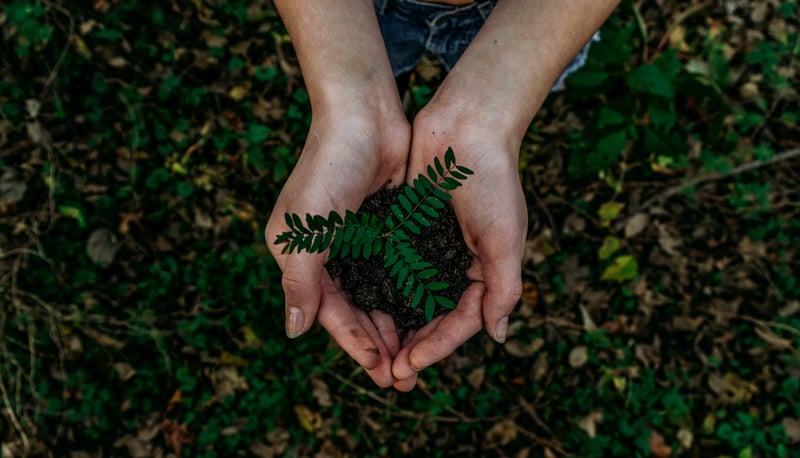
It costs around £0.75 to pay to plant a tree, and it’s a really nice touch to do for each purchase, especially for an online store. If you’re concerned about margins, you could always set a minimum spend.
Top tip! Keep track of how many trees you plant through your business. It will make great content for social media, and one day you could even have a live tree counter on your site.
9. Review who you bank with
How did you choose your business bank account — was it offering a good deal for new joiners? Did it come recommended by a friend?
While these are all very worthwhile reasons, once your business is more established, it’s worth looking into how your bank invests its (or rather, your) money, and whether this aligns with your values as a business. By choosing a bank which invests in causes like green energy over nuclear power, your business’s money is going to be making a difference in the right direction.
10. Review your delivery service
Like your bank and your utilities provider, choosing a more eco-friendly delivery service for your ecommerce orders is one extra eco-friendly tick in the box for your own business.
If you’re UK-based, DPD scores pretty well on the green front. They have over 700 electric vehicles currently, with ambitious plans to make this many more over the next few years.
11. Offer in-store recycling
If you sell anything that’s awkward to recycle, offer your customers the chance to bring it back into your store to be recycled. Or even if it’s straightforward, could you offer some incentive to encourage people to bring them in?
Lush, for example, offers customers a free face mask when they bring back five of their black cosmetics pots, or the chance to take £0.50 off each Lush purchase with every pot you return (depending on where in the world you’re shopping). These pots can then be reused to package future Lush products.
This ‘deposit-style scheme’ is even more eco-friendly than straight up recycling, and also brings customers back into your store. It’s a win for you, and a win for the planet.
12. Support ‘slow’ shopping
As a small business owner, you of course want to make as many sales as possible.
But when it comes to heavy discounting events, like Black Friday, don’t be afraid to stand against it. In our post examining whether or not your business should do Black Friday, we covered a number of bigger brands who have successfully done just that. The Green Out Black Friday campaign is also gaining traction.
13. Carbon offsetting
We mentioned earlier that it’s not possible to find a ‘perfectly sustainable’ product, and it’s also not possible to be a ‘perfectly sustainable’ retail business.
Carbon offsetting offers a very easy way to (sort of) counteract the carbon footprint of your whole business, or a part of your business (such as shipping), by investing in environmental projects around the world. You can use a carbon offsetting provider, like Carbon Neutral, to help you work out what your carbon footprint is, and how much of it you’d like to offset, as well as paying for the carbon offsetting directly through them.
Final thoughts
It’s not an easy time to be a small retailer (then again, when is?!). If making your retail store more sustainable is something that’s on your radar, we salute you.
Remember not to strive for perfection; you need to make decisions that work for your business, and your customers, as well as the planet. Taking on any of the above steps is a great start.
Got any sustainability tips or best practices we haven’t covered here? Let us know in the comments!
Not registered with CREOATE yet? Sign up now and start shopping wholesale with us today.
Related articles:
Browse Popular Categories at CREOATE: Wholesale Jewellery | Wholesale Gifts | Wholesale Stationery | Wholesale Beauty Products | Wholesale Mugs | Wholesale Homeware | Wholesale Pet Supplies | Wholesale Gourmet Food | Wholesale Garden & Outdoor | Wholesale Baby & Kids Products
Browse Trending Collections on CREOATE: Wholesale Halloween | Wholesale Mother's Day Gifts | Wholesale Father's Day Gifts | Wholesale Valentine's Day Gifts | Wholesale Spiritual Supplies
>> View all


